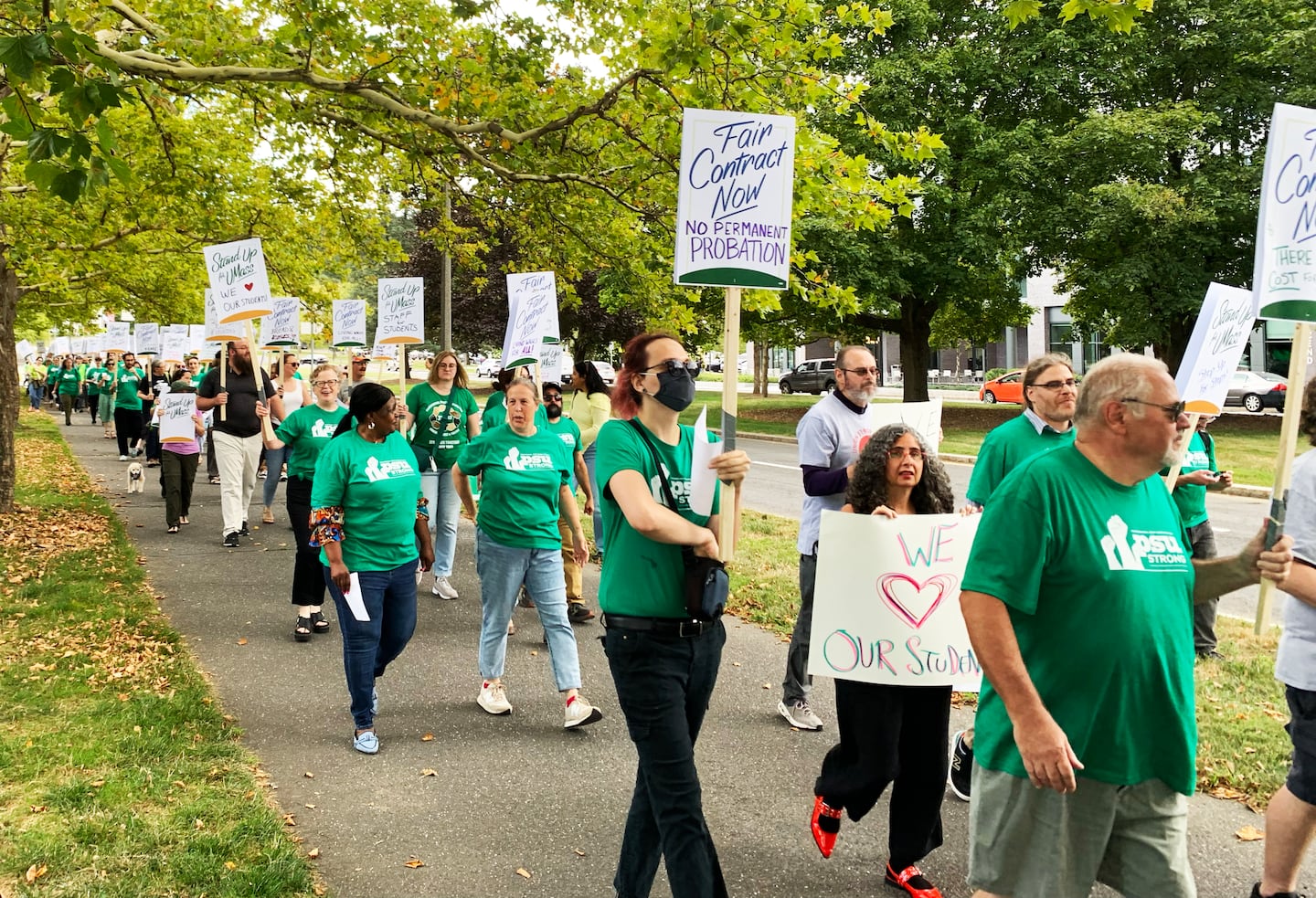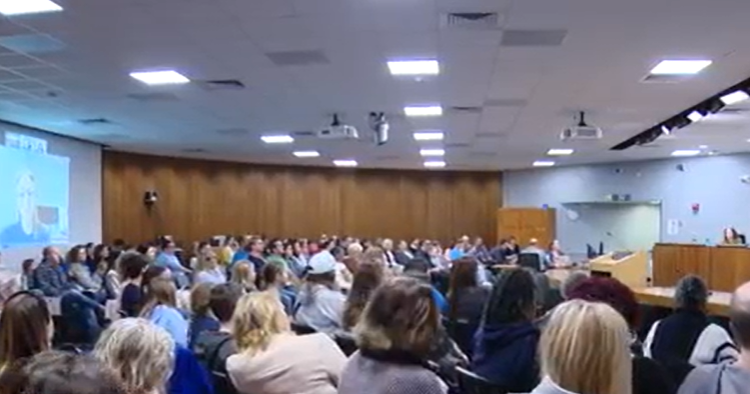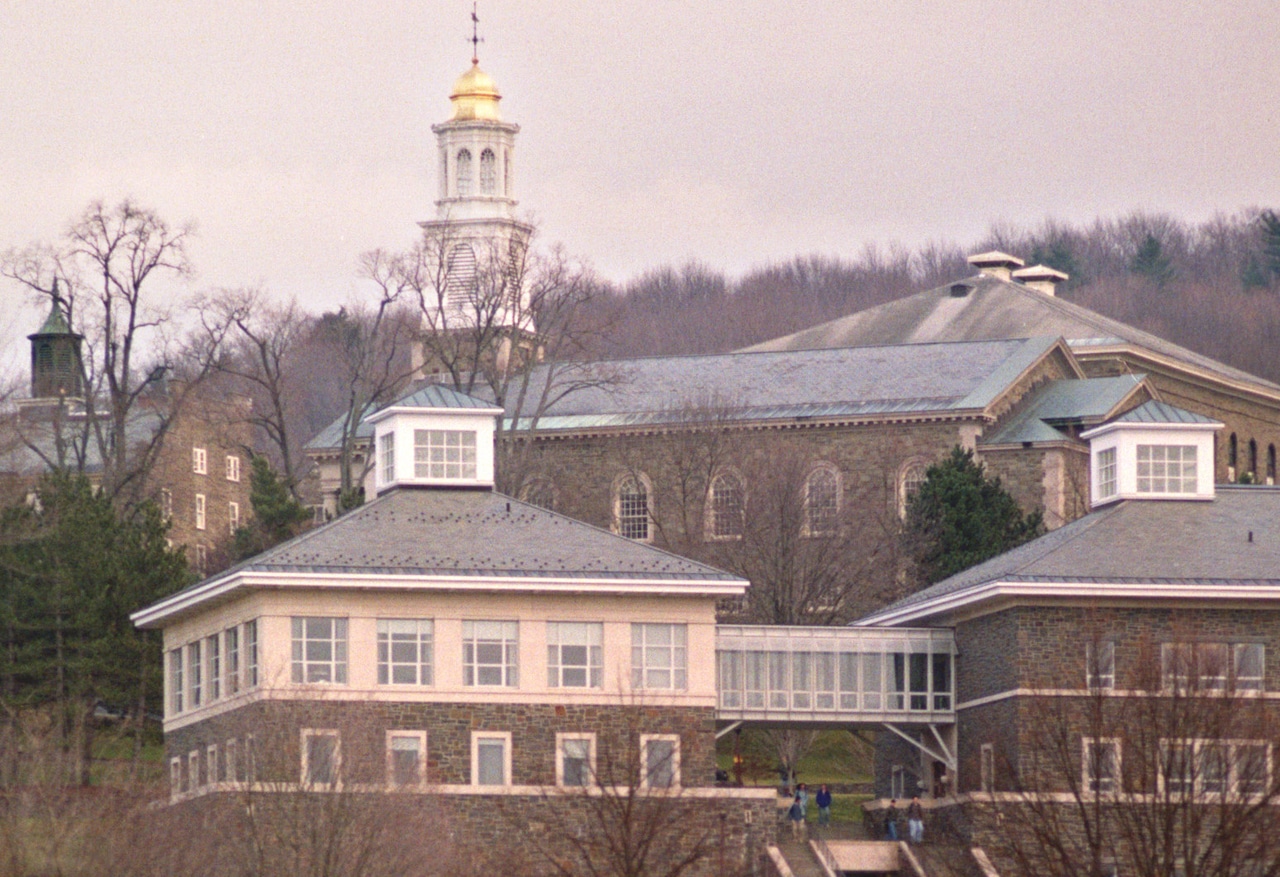Copyright The Boston Globe

Andrew Gorry, co-chair of the Professional Staff Union, said the board chose to pursue a no confidence vote because Reyes has for 17 months refused to meet with union leadership and, he said, unfairly attempted to stymie negotiations for a new contract that could increase employees’ pay and employment protections. On September 29, UMass Amherst chose the “nuclear option,” the union wrote in a statement, by filing for impasse on negotiations with the Massachusetts Department of Labor Relations. That process lets parties to bring in a state mediator to help reach an agreement. If approved, an impasse declaration will “allow UMass to unilaterally impose its ‘last, best offer’ without an agreement,” the statement continued. Over the past two years, Reyes and UMass have also threatened unions representing campus administrative support staff, graduate workers, faculty and librarians and police with impasse filings. Negotiations with the staff union have continued on a typical schedule since UMass filed for impasse, said Gorry, also the communications director for the UMass Amherst College of Education. “[Reyes’] imposing of hard and draconian actions on our membership through this process is unacceptable,” he added. “He is basically driving the university to file for impasse so they can get everything they want without bargaining. How can we have confidence in someone who won’t speak with us?” “It used to be that they would never use this procedure,” Gorry continued. UMass Amherst did not immediately respond to request for comment. Reyes last faced such scrutiny in spring 2024, after he sent for the police amid pro-Palestinian student encampments on campus. The arrests of over 130 students prompted the student government association to vote no confidence in May, citing Reyes’ “unconscionable decision”; college faculty and librarians did the same days later. At the time, Reyes issued a statement that the votes “sent a clear signal that we have work to do as we move toward a just and safe environment for our community.” Months later, he was rumored to be leaving Amherst for the presidency at West Virginia University, but was ultimately passed over for the job, Connecticut Public Radio reported. Now as negotiations with the Professional Staff Union trudge on, staff members take issue with a proposal to replace a cost-of-living increase with a merit-based pay bump. In a statement, the union said the system would halve pay increases for most members, “encourage a climate of fear and uncertainty, torpedo morale, turn implicit bias into financial penalties, and poison our working relationships.” The Amherst union said, too, that they are being cut out of proposals offered to colleagues on the UMass Boston campus, including bonuses for long-tenured and low-paid employees. Across the country, votes of no confidence are becoming more common as the divide between campus workers and college leadership widens, the Globe reported last year. Faculty at New England universities have issued roughly 20 votes of no confidence or censure, more than double the decade prior.



